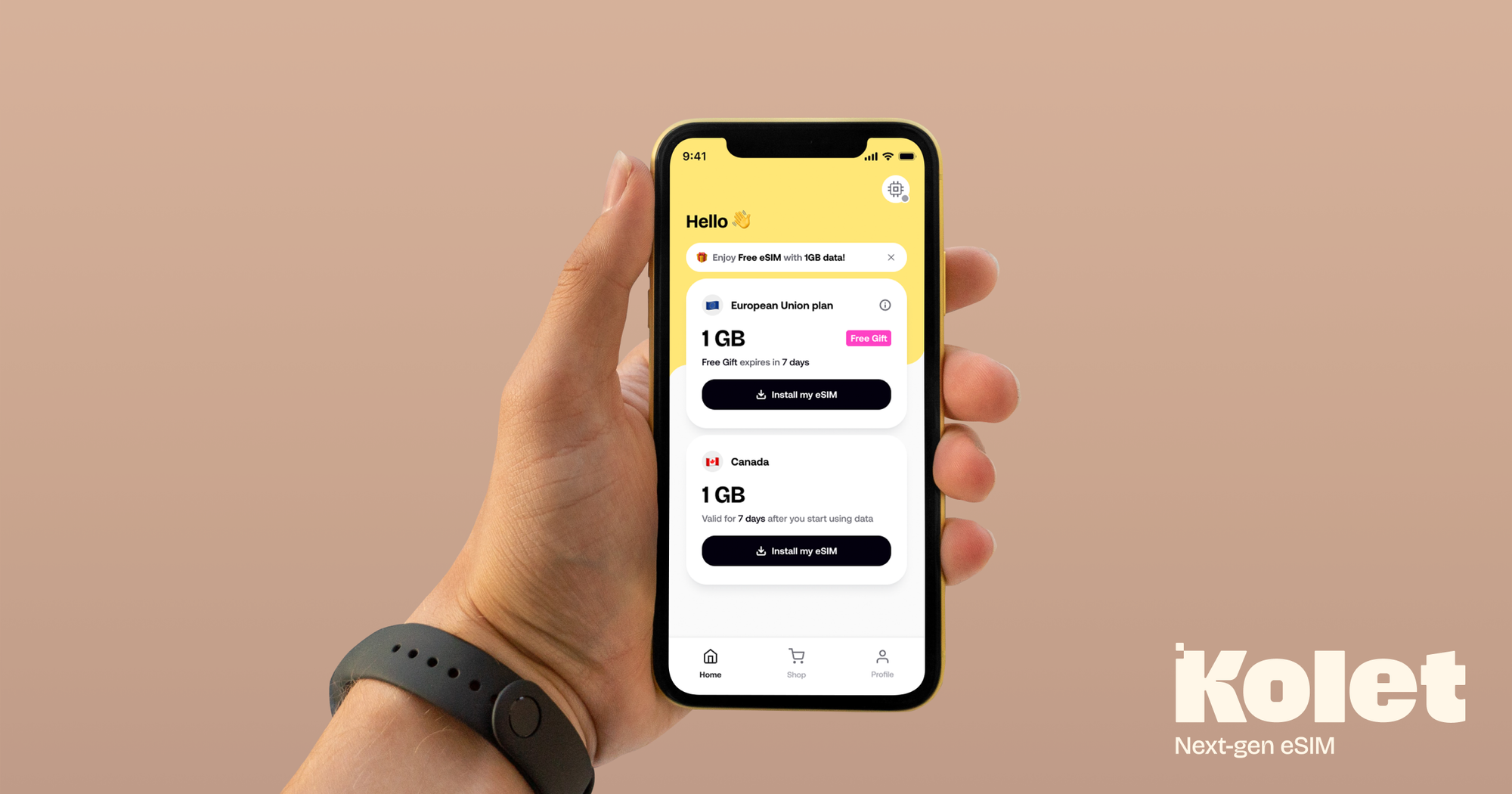For more than a decade, Spanish entrepreneur Eduardo Ronzano had an oversized impact on the embryonic French tech ecosystem. First, as a founder who sold his startup, and then as one of France’s most prolific angel investors (and managing director of a semi-secret VC fund called…Secret Fund).
In 2022, Ronzano moved back to his hometown of Bilbao, Spain with his wife and children, which presented him with a dilemma. He wanted to keep his French phone number, but he also needed a Spanish phone number for administrative reasons. It was at this point he discovered the existence of eSIMs, the electronic versions of the classic SIM card that would allow him to have two phone numbers.
“That's when I realized that the distribution of telecom products has changed forever,” he said. “That seems like something stupid and super simple. But that’s when I understood I wanted to do something in this space.”
While the eSIM standard has existed for almost a decade in the telecom industry, and the first eSIM-enabled phones rolled out in 2016, their usage only really began to hit the mainstream when Apple first added it to their iPhones in 2018 and 2019. According to industry association GSMA, adoption has been slower than expected accounting for only 15% of smartphone connections in 2023. However, with almost all global carriers now offering eSIMs, that deployment is expected to rapidly accelerate.
Beyond just offering easier activation and avoiding the need to manufacture millions of SIM cards, eSIMs are expected to power a new ecosystem of services that are enabled by flexibility and convenience.
That includes Ronzano’s new Paris-based startup, Kolet, which just raised a €5 million Seed Round to develop an eSIM service specifically for international travelers. Founded earlier this year, Kolet is targeting the travel industry as a first step toward Ronzano’s grander vision: A new global telecom platform that provides mobile data access to billions of consumers who currently lack such services.
“I won't be happy just if we make money,” Ronzano said. “I want to make a dent in telecom that's so big that other telco operators will have to mimic what we do and become more customer-centric companies."
What is Kolet?
The company allows travelers to install a single eSIM via its app on their smartphone that will provide mobile data via local networks in 180 countries.
Why?
Despite various consumer reforms in different regions, telecom plans remain immensely complex and confusing. For travelers roaming outside their local regions, just trying to understand the roaming costs can be complex. Signing up even for a local pre-paid plan can be costly, requiring fees for an entire month of service – even if the trip is only going to last a week.
By offering a single platform with clear pricing and transparent tracking of usage, Kolet wants to remove the hassle and the fear of massive charges for international travelers. According to Kolet, while smartphones have become an essential tool for travelers, about 70% of tourists keep them in airplane mode due to fear of roaming charges.

Under The Hood
Kolet has created a B-to-B-to-C model for encouraging adoption. The company initially plans to offer the app to travel and hospitality companies so they can, in turn, offer it as a promotional benefit to their customers.
For instance, someone buying an airplane ticket or booking a hotel room could also be offered a free 1GB of data from the partner. Those travelers would receive an email from the travel partner instructing them to download the Kolet app to activate their service.
Once that 1GB is used, Kolet will then offer additional amounts of data to those users, with a clear price and no extra surprises. Ideally, this will drive downloads of the app, which consumers can continue to use on other trips.
For partners, Kolet has essentially created a turnkey service and handles all the technical setup and customer service.
The Kolet service is provided via partnerships it has struck with carriers in 180 countries, a remarkably fast start for a company that was just founded in January. This was initially the biggest strategic and technical challenge.
Ronzano said the company worked intensely with telecom partners on integration via an API that allows the app to quickly call and provision service via a local partner. Kolet’s founders negotiated wholesale prices for data with these carrier partners.

Who?
Ronzano is the ringleader, and his prominence in the French tech ecosystem has helped the company catalyze its launch. He first made his mark in 2012 when he co-founded KelDoc, a health appointment booking platform, that was acquired in 2016 – a rare exit for a French startup at the time.
That became a springboard for Ronzano’s angel investing. According to Dealroom, he’s backed 51 startups, including 37 in France. In addition, he co-manages Secret Fund, an early-stage investor that he created with Hexa co-founder Thibaud Elzière and Stupeflix founder Nicolas Steegmann.
With the basic idea of Kolet in mind, he began building a team of co-founders by leveraging his network. That included Anne-Carole Coen, former chief marketing officer at Swile, someone he had known for years and had been trying to recruit for different projects over the years.
He had known Kolet COO Mehdi Chraibi from when they were both studying telecom engineering at university. Chraibi went on to work for Orange for several years before later starting and selling his own startup. Ronzano said their respective backgrounds in telecom helped them win the confidence quickly of carrier partners.
Finally, his Secret Fund partner Steegmann introduced him to Kolet CTO Jérémy Gotteland More recently, Gotteland was a co-founder of Cajoo, the delivery platform that Flink acquired.
The Full Scoop...
Subscribe to get Kolet's funding details, a breakdown of its investors, and its roadmap to raising a Series A round.






